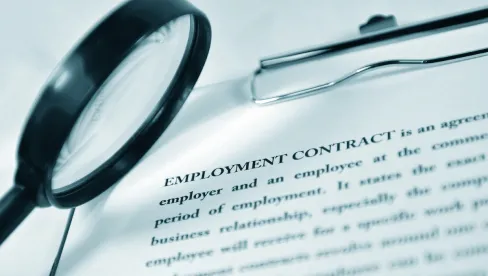Employers take note! The year 2020 will welcome a handful of legislative changes, in Illinois and beyond. The scope and impact of these legal updates require prompt attention to ensure compliance.
Below is a checklist of these major changes, along with some tips and resources for making any required modifications to your business practices:
Sexual Harassment Compliance Training
Effective January 1, 2020, all Illinois employers (as well as out-of-state employers with employees working in Illinois) must provide sexual harassment compliance training at least annually. And restaurants, bars and certain licensed professionals must undergo training that meets additional industry-specific requirements.
NEXT STEPS: Contact your Much attorneys to learn more about the specific requirements applicable to your business. Make arrangements to schedule your compliance training with a Much Labor & Employment attorney.
Recreational Marijuana
The recreational use of marijuana will become lawful in Illinois as of January 1, 2020. And while employers can certainly continue to prohibit the use (or being under the influence) of marijuana in the workplace, now is a good time to revisit your drug policies to ensure that they achieve your business objectives in a compliant manner. Learn more details about the new law here.
Confidentiality and Arbitration Provisions
The Illinois Workplace Transparency Act goes into effect January 1, 2020. Among other things, this law imposes new restrictions on how and when employers can use confidentiality and arbitration provisions in agreements with employees. Of particular note is how the law will impact the enforceability of confidentiality provisions in settlement and separation agreements, which must now satisfy a slate of new requirements. Learn more details about the new law here.
NEXT STEPS: It is likely that, going forward, your employment agreements, confidentiality agreements, separation agreements and even provisions in your company handbook will need revisiting. Contact your Much attorneys to discuss the best ways to achieve compliance with the new law, with minimal disruption to your business objectives. In any case, in light of the myriad other changes going into effect, it may be time for a handbook update.
The California Consumer Privacy Act
The most comprehensive data privacy law in the country goes into effect in California on January 1, 2020. The CCPA provides for new consumer rights regarding the collection and use of personal information, which is broadly defined as almost any information a company might collect about an individual in the course of business.
Although the CCPA applies only to companies doing business in California that also satisfy one of three thresholds, some in-state and out-of-state companies may be surprised to learn that they fall within the ambit of this new legislation. Learn more details about the new law here. Please note that the legislation is still being developed and certain carve-outs may be applicable to your company in the context of employee data collection and use.
Secure Choice Retirement Savings Program
Illinois has a new state-sponsored retirement savings program called Illinois Secure Choice. Although it technically went into effect on November 1, 2019, companies will continue to navigate compliance into the early months of 2020. The new initiative requires most Illinois employers that do not sponsor their own retirement plans to make after-tax payroll deduction contributions to Roth IRAs established in their employees' names. Learn more details about the new law here.
Illinois Human Rights Act Amendments
Although changes to the Illinois Human Rights Act do not go into effect until July 1, 2020, now is a good time to start thinking about these amendments. Chiefly, the definition of "employer" will change from those with at least 15 employees to any entity that employs one or more people; the definition of "harassment" will change; and employers will be subject to new annual reporting requirements to the Illinois Department of Human Rights. Learn more details about the new law here.
Chicago Fair Workweek Ordinance
Starting July 1, 2020, certain employers in the City of Chicago will be required to give advanced notice of workers' schedules and will be required to compensate those workers for last-minute schedule changes. The ordinance will apply to certain employers in the building services, health care, hotel, manufacturing, restaurant, retail and warehouse services industries.




 />i
/>i

